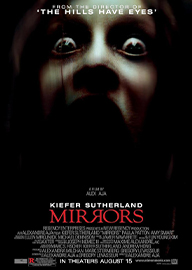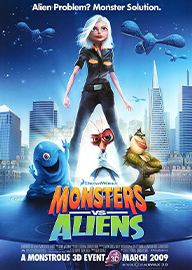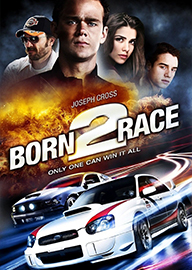Hunger AKA Sult
- 7.7
- Drama
- 1966
- 1h 52m
- 14+
Toward the end of the 19th century, destitute, selfless and lonely, Swedish writer Pontus (Per Oscarsson) is trying to piece together a living in a working-class neighborhood. His interactions with the local newspaper lead to frustration when an editor tinkers with an article he's written. What little money he can scrounge he donates to the city's homeless. Frustrated and hungry, Pontus tries to find various jobs that will, at the very least, buy him a meal and alleviate his isolation.













Comments
0Reviews
0Summery
1Please sign in to comment.
Please sign in to review.
**"Hunger"**, directed by **Henning Carlsen**, is a Danish-Norwegian drama film based on the novel of the same name by **Knut Hamsun**, a seminal work of Norwegian literature. The film offers a raw and poignant portrayal of a struggling writer’s descent into desperation and madness as he battles starvation and poverty in the city of **Kristiania (now Oslo)** in the late 19th century. With a mesmerizing lead performance by **Per Oscarsson**, the movie delves into the psychological and existential struggles of its protagonist, offering a haunting depiction of isolation, pride, and human endurance. "Hunger" was well-received internationally, particularly for its powerful exploration of the human condition and its stark, minimalist style.
The narrative follows **Pontus**, a penniless writer who roams the streets of Kristiania in search of food, work, and recognition for his talent. As he struggles with hunger, he simultaneously grapples with his own pride and dignity, refusing to ask for help or accept charity, which exacerbates his suffering. Pontus is an intensely proud and complex character, constantly torn between his intellectual aspirations and his physical need for sustenance. His pride often leads him to make irrational decisions, like rejecting opportunities to eat or declining job offers, as he clings to an idealized vision of himself as a serious artist. This inner conflict drives much of the film’s tension, as Pontus spirals further into starvation and delusion.
As Pontus wanders through the city, he encounters a series of characters who reflect different aspects of society’s indifference or pity toward the downtrodden. His interactions with these people are often marked by his increasing detachment from reality. At times, he falls into hallucinatory episodes where he imagines grandiose or surreal scenarios, showcasing the psychological toll of hunger and isolation. Despite his deteriorating condition, Pontus refuses to give up on his writing, scribbling notes and ideas that he hopes will one day gain him recognition and lift him out of his dire circumstances.
**Per Oscarsson’s performance** as Pontus is nothing short of extraordinary, capturing both the physical agony of starvation and the psychological unraveling of a man pushed to his limits. Oscarsson brings a haunting intensity to the role, conveying Pontus’s desperation, arrogance, and vulnerability in equal measure. His portrayal earned him international acclaim, including the **Best Actor award at the Cannes Film Festival** in 1966. The film’s success owes much to his ability to embody the complex and tragic nature of the character, making Pontus’s plight deeply moving and relatable.
The cinematography by **Henning Kristiansen** plays a crucial role in establishing the oppressive atmosphere of the film. The bleak, gray streets of Kristiania serve as both a literal and metaphorical prison for Pontus, emphasizing his isolation and hopelessness. The stark visuals, combined with the film’s minimalist approach, create a sense of claustrophobia and suffocating despair. The camera often lingers on Pontus’s gaunt, skeletal figure, highlighting his physical deterioration and the relentless grip of hunger on his body and mind.
**"Hunger"** is not just a story of physical starvation, but also of intellectual and emotional starvation. Pontus’s inability to reconcile his artistic ambitions with the harsh realities of his life serves as a broader commentary on the struggles of artists and individuals in a society that often fails to value creativity and individualism. The film explores themes of pride, failure, and the often futile search for meaning in a world that seems indifferent to personal suffering. At its core, **"Hunger"** is a study of human resilience and the limits of endurance. Pontus’s refusal to compromise his principles, even in the face of death, is both tragic and heroic, raising questions about the cost of artistic integrity and the sacrifices individuals make for their ideals. The film’s portrayal of hunger extends beyond the physical realm, symbolizing the deep, existential hunger for purpose, recognition, and connection that drives human existence.
In the end, **"Hunger"** leaves viewers with a sense of profound unease and empathy for its protagonist. Pontus’s story, though specific to a time and place, speaks to universal themes of human struggle and the delicate balance between pride and survival. The film’s bleak but compelling depiction of a man’s slow decline into madness and destitution makes it a powerful and unforgettable cinematic experience.
In conclusion, **"Hunger" (1966)** is a masterful adaptation of Knut Hamsun’s novel, delivering a deeply affecting and unflinching look at the human condition. Henning Carlsen’s direction, combined with Per Oscarsson’s unforgettable performance, ensures that the film remains a classic of Scandinavian cinema and a powerful exploration of the themes of pride, despair, and survival against the odds. It is a must-see for those who appreciate character-driven dramas and psychological explorations of human frailty.